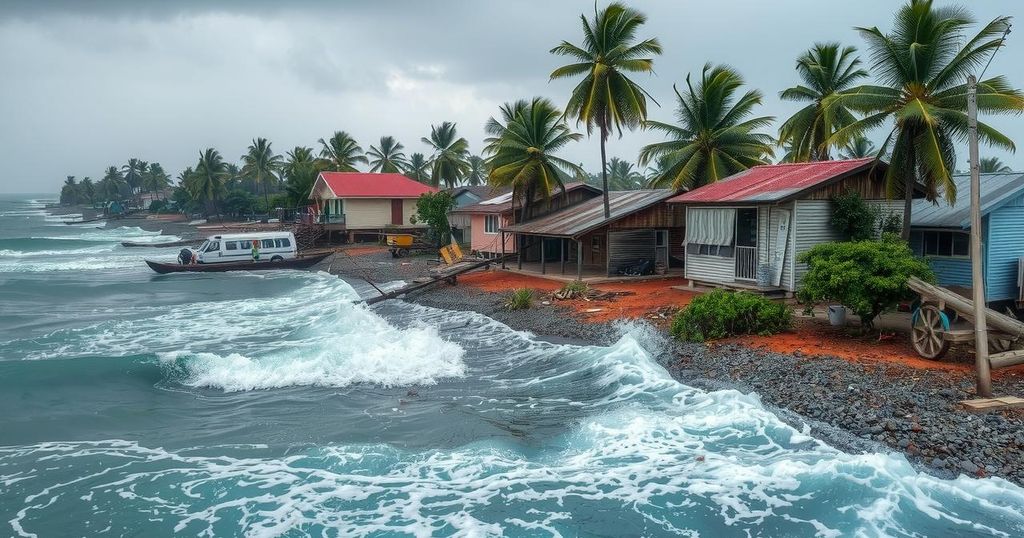Cyclone Chido Causes Catastrophic Damage in Mayotte and Mozambique

Cyclone Chido struck Mayotte on December 15, causing extensive damage and a potential death toll in the thousands. The cyclone, influenced by climate change, later hit Mozambique, leaving 1.7 million people at risk. Urgent aid has been pledged by European and WHO officials, although undocumented residents hinder damage assessments.
Cyclone Chido made landfall in Mayotte on December 15, resulting in significant devastation across the island. The cyclone obliterated numerous shantytowns and severely damaged essential infrastructure such as the airport, leading to widespread disruption. Experts have indicated that the storm’s intensity is attributable to climate change, particularly the elevated temperatures of the Indian Ocean. Consequently, recovery efforts have been impeded due to the loss of electricity, water supply, and communication channels, with initial reports suggesting that the death toll could reach into the thousands.
Following its impact on Mayotte, Cyclone Chido proceeded to Mozambique, compounding the destruction further. The United Nations Office for the Coordination of Humanitarian Affairs (UN OCHA) has raised alarms, stating that approximately 1.7 million individuals are currently at risk in the affected regions. In response, EU President Ursula von der Leyen and the World Health Organization (WHO) have pledged assistance, although the presence of 100,000 undocumented residents poses challenges to conducting a thorough damage assessment.
The phenomenon of cyclones, particularly in the Indian Ocean, has become increasingly frequent and intense, primarily due to the ramifications of climate change. Rising sea temperatures contribute to the formation of powerful storms, which pose significant risks to coastal communities. In the case of Cyclone Chido, the immediate impacts have highlighted the vulnerability of islands like Mayotte, as well as the mainland regions such as Mozambique. These events underscore the urgent need for sustainable measures to address climate-related crises.
Cyclone Chido has emerged as a catastrophic event impacting both Mayotte and Mozambique, with thousands feared dead and millions more at risk. The consequences of this natural disaster emphasize the critical influence of climate change in exacerbating severe weather events. Moving forward, international aid efforts are necessary to address immediate needs, while long-term strategies must be developed to mitigate the risks of future cyclones. Attention to undocumented populations in disaster assessments is also crucial for effective recovery efforts.
Original Source: m.economictimes.com






